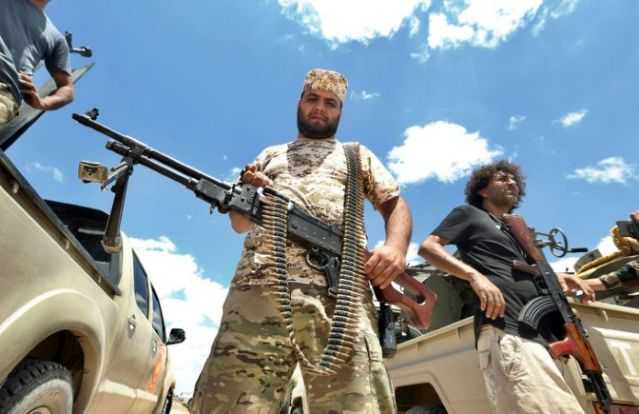
The surprise announcement followed multiple visits by top foreign diplomats to Libya in recent weeks, and came after a series of agreements and pledges that, however, have failed to be implemented.
Friday’s statements were signed by Fayez al-Sarraj, head of the UN-recognised unity Government of National Accord (GNA), based in the capital Tripoli, and Aguila Saleh, speaker of the eastern-based parliament backed by military strongman Khalifa Haftar.
The UN’s top official to Libya, Stephanie Williams, welcomed the move and called for “all parties to rise to this historic occasion and shoulder their full responsibilities before the Libyan people”.
European Union diplomatic chief Josep Borrell hailed an “important and positive” initiative, adding it was “crucial now that all parties stand by their statements”.
Sarraj called for “presidential and parliamentary elections next March”, and for the “end of all combat operations”.
Saleh also backed elections — though he did not specify a date — and urged “all parties” to observe “an immediate ceasefire and the cessation of all fighting.”
Both leaders called for the resumption of the production and export of oil, a cornerstone of Libya’s wealth.
Egyptian President Abdel Fattah al-Sisi, who backs Haftar and had threatened to deploy troops in neighbouring Libya, said he supported the ceasefire declarations.
“I welcome statements by Libya’s presidential council and the House of Representatives calling for a ceasefire,” Sisi said in a tweet.
Libya’s former colonial power Italy also welcomed the move, as did France, Germany, the Arab League, Qatar and Jordan.
“The announcement of the ceasefire in Libya is an important step in the relaunching of a political process that will promote the stability of the country and the welfare of the people,” Italian Prime Minister Giuseppe Conte said.
The French foreign ministry said the ceasefire announcements “must be realised on the ground” and called for an end to all foreign interference in Libya.
Libya has been torn by violence since the 2011 toppling and killing of longtime dictator Moamer Kadhafi in a NATO-backed uprising.
Since then, the North African country has become a battle ground for tribal militias, jihadists and mercenaries and a major gateway for desperate migrants bound for Europe.
In April last year, Haftar launched an offensive to seize Tripoli from the GNA, and foreign powers intervened alongside the rivals’ forces.
Turkey and Qatar backed the GNA, while the United Arab Emirates, Egypt and Russia support Haftar, who is also suspected of receiving French backing.
Paris has however insisted it is neutral in the conflict, and President Emmanuel Macron has lashed out at Turkey for its military intervention on the side of the GNA.
After 14 months of fierce fighting, Turkish-backed pro-GNA forces expelled Haftar’s troops from much of western Libya and pushed them eastwards to Sirte.
The central Mediterranean coastal city, home town of Kadhafi, is the gateway to Libya’s eastern oil fields and export terminals, and to the key Al-Jufra airbase to the south.
Sarraj said a ceasefire would allow the creation of “demilitarised zones” in Sirte and the Al-Jufra region, currently under the control of pro-Haftar forces.
Saleh did not mention the demilitarisation zones, but proposed the installation of a new government in Sirte.
Libya’s National Oil Corporation (NOC) also welcomed Friday’s announcement.
Libya sits atop Africa’s largest proven crude oil reserves, and earnings from its lucrative oil fields have been a source of intense disagreement between the two sides, including a months-long blockade of oil terminals.
“NOC reiterates its call for all oil facilities to be freed from military occupation to ensure the security and safety of its workers,” the state oil producer said in a statement.
“Once this has been done, NOC should be able to… re-commence oil export operations.”
International pressure has sought to bring Libya’s rival leaders to an agreement several times in past years, but has failed to secure a lasting peace.
Analyst Jalel Harchaoui, research fellow at The Hague-based Clingendael Institute, said there was a long road ahead before peace.
“The question is, is this announcement fully achievable? In all likelihood, implementation will be difficult,” said Harchaoui, noting the multiple regional forces who could act as spoilers of a deal.

